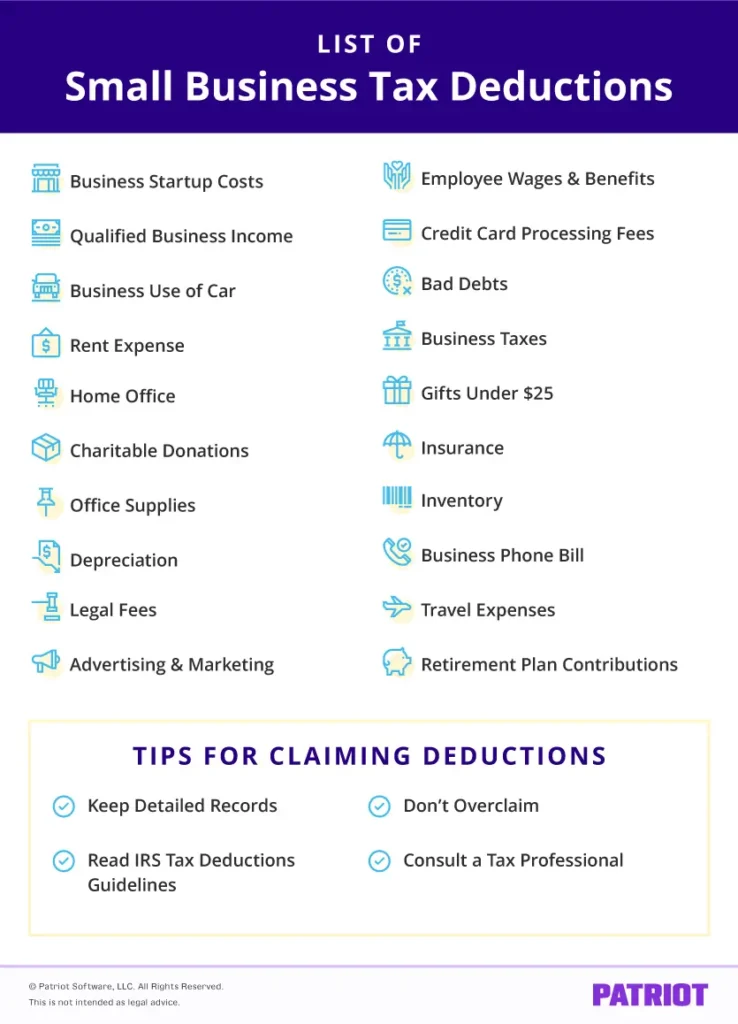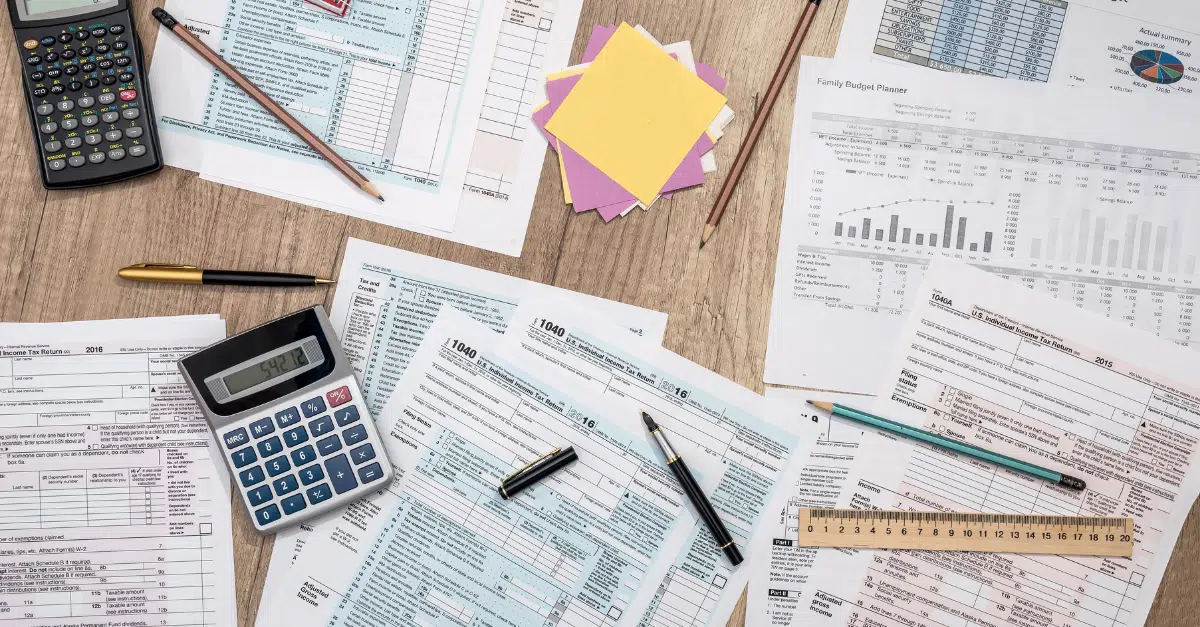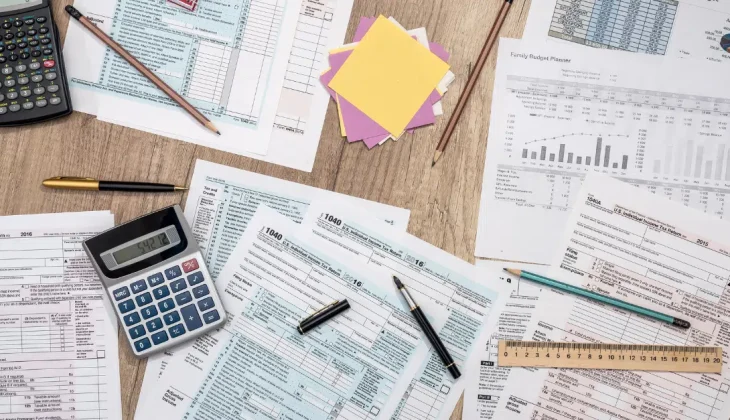Summary
- Save all receipts and invoices related to business expenses to prevent problems during an IRS audit.
- Sort your expenses by category to simplify and improve the accuracy of your tax filing.
- Utilize digital tools and applications to efficiently track and store expense documentation.
- Consistently review and update your records to make sure they are comprehensive and correct.
- Seek advice from a tax professional to optimize deductions and stay informed about changing tax laws.
The Importance of Documenting Tax Deductions
Let’s discuss why it’s so crucial to keep track of your tax deductions. The IRS won’t just take your word for it when you say you’ve incurred business expenses. They require evidence, and that’s where documentation comes into play. By maintaining thorough records, you can substantiate your claims and avoid any unexpected issues in the event of an audit.

Avoiding Audit Complications
Getting audited by the IRS is like having a pop quiz you didn’t prepare for. But fear not, because if you’ve kept meticulous records, you’re already ahead of the curve. The IRS necessitates that you have documentation to support any deductions you claim. This involves keeping receipts, invoices, and any other evidence of purchase.
Picture this: You’ve claimed a deduction for a business lunch, but you didn’t keep the receipt. If the IRS comes knocking for proof, you might not be able to provide it, and that deduction could be disallowed. To avoid this, always keep your receipts and document the purpose of each expense.
Getting the Most Out of Your Tax Deductions
Not only can keeping track of your expenses help you avoid audits, but it can also save you money. Every dollar you can deduct lowers your taxable income, which means you pay less in taxes. However, if you don’t have the proper documentation, you could miss out on these savings.
Consider this: Each receipt is like a golden ticket. It may not appear to be significant at first, but when you add them all up, they can significantly decrease your tax bill. Therefore, the more organized you are with your documentation, the more money you could potentially save.
Categories of Deductible Business Expenses
Knowing what you can deduct is just as crucial as keeping your receipts. There are several types of business expenses, and understanding which ones are deductible can help you save even more. For further assistance, consider reviewing a business tax audit preparation checklist to ensure you’re on the right track.
Expenses for Travel and Lodging
If you need to travel for work, you can deduct many of those costs. This includes flights, hotel rooms, and even meals. But don’t forget, you need to keep detailed records of each trip, including the business purpose and any receipts.
Pro tip: Consider using a travel expense tracking app to keep all your documentation in one place. This will allow you to log expenses as they occur and help you stay organized.
- Flights and ground transportation
- Accommodations
- Food and fun (record who you were with and why it was a business expense)
- Workshops and training costs
Workspace Materials and Devices
Everything from writing utensils and notepads to desktops and applications, workspace materials and devices are usually tax-deductible. Save all receipts from purchases and document how each item was used for business.
Costs for Advertising and Marketing
Getting the word out about your business is critical, and luckily, many costs for advertising and marketing can be written off. This encompasses online advertisements, printed materials, and even sponsorships. Just remember to hold onto all related expense documentation.
Don’t forget, the secret to successful tax deductions is documentation. Without it, you could end up losing out on important savings. Therefore, hold on to those receipts, sort out your expenses, and use technology to your benefit.
Take Advantage of Technology to Keep Track
Nowadays, technology is a great tool for keeping track of expenses. There are many apps and software programs that are designed to help with this. These tools can help you record expenses as they happen, sort them, and keep digital versions of receipts. This makes it simpler to stay organized and make sure you have everything you need when it’s time to do your taxes.
Dodging Typical Documentation Mistakes
We’re all human, and humans make mistakes. But when it comes to tax documentation, even a minor mistake can be expensive. Here are some typical mistakes to be aware of and how to dodge them.

First off, don’t fall into the trap of thinking that minor expenses don’t require documentation. Every penny counts, and these minor expenses can accumulate over time. Always keep a record, regardless of how trivial the expense may appear.
“I remember a client who was under the impression that only expenses above $50 required receipts. When they were audited, they had to rush to reconstruct records for smaller amounts. It was a tense situation that could have been prevented with the right documentation.” – Tax Professional
A common error many people make is combining personal and business expenses. This can cause confusion and could potentially lead to problems with the IRS. To avoid this, it’s best to keep separate accounts or cards for business expenses.
How to Prevent Losing Receipts
Receipts are crucial for expense documentation, but they can be misplaced or damaged without difficulty. To prevent this from happening, you might want to consider digitizing your receipts. There are apps available that enable you to take photos of your receipts and save them on the cloud. That way, if you ever lose the physical copy, you still have a backup.
Steadiness in Tracking Expenses
Steadiness is a must when tracking expenses. Create a routine for recording expenses and stick with it. Whether it’s taking time each week to update your records or recording expenses as they happen, find a method that suits you and stay steady.
Additionally, be sure to categorize your expenses accurately. Misclassification can result in mistakes on your tax return and possibly overlooked deductions. Use software that allows you to set up categories that match IRS guidelines.
Recording the Business Reason for Expenses
When recording expenses, it’s crucial to mention the business reason. This is particularly true for expenses such as meals and travel. Include details such as who you met with, the reason for the meeting, and any results. This information can be vital if the IRS questions the validity of an expense.
Let’s say you take a client out for a meal. Write down what you talked about and how it connects to your business. This extra information can help validate the deduction.
How Software Impacts Tax Planning
Software is a critical component of contemporary tax planning. It assists you in monitoring expenditures while also providing tools to optimize deductions and comply with tax regulations. By utilizing the appropriate software, you can simplify the documentation process and minimize the likelihood of mistakes.

Why You Should Use Tax Planning Software
There are several reasons why you might want to use tax planning software. For one, it does all the calculations for you, which means there’s less chance of a mistake. It can also remind you when it’s time to pay your taxes, so you don’t forget.
Additionally, a lot of these programs provide features such as expense categorization and integration with accounting software, which makes it a lot simpler to keep everything in order. They can also create reports that offer you a look into your spending habits and potential areas where you can save money.
Suggested Tools for Expense Documentation
- QuickBooks: Excellent for small businesses, providing comprehensive accounting and expense tracking features.
- Expensify: Perfect for tracking receipts and managing expenses on the go.
- FreshBooks: User-friendly interface ideal for freelancers and small business owners.
- Zoho Expense: Provides robust features for tracking and managing expenses efficiently.
Each of these tools offers unique features, so consider your specific needs when choosing one. Look for features like receipt scanning, expense categorization, and integration with other financial software. For more insights, explore our top tax advisor evaluation guide for tax credit opportunities.
Keep in mind, the correct tool can greatly impact how you handle your expenses and get ready for tax season. Make sure to take the time to look at your options and find the best fit for your business.
What to Consider When Choosing Tax Software
When you’re in the market for tax software, you should look for certain features that will make your life easier. Features like cloud storage for your receipts, easy integration with your accounting software, and detailed reporting capabilities can make tracking your expenses a breeze and make sure you’re always ready when tax season rolls around.
Real-Life Ways to Save on Taxes
Using strategies all year long can help you save on taxes and get the most deductions. By planning and making smart decisions, you can lower your tax bill and keep more money for yourself.
A good tip is to plan when you make your purchases. For example, if you buy office equipment at the end of the year, you can get deductions sooner. Also, if you plan big expenses around your tax year, you can change your deductions.
Be mindful of when you make your purchases. If you think you’ll be making more money next year, it could be a good idea to hold off on expenses so that they can offset your increased income. On the other hand, if you think you’ll be making less, it could be beneficial to get those expenses out of the way this year. For more detailed guidance, check out this business tax audit preparation checklist.
Other than timing, think about how you can make the most of employee compensation. Giving benefits such as retirement plans or health insurance can give tax benefits for both you and your employees.
Maximizing Employee Pay
Offering employee benefits can be a great advantage. It not only helps to draw and keep talent, but it also provides possible tax savings. Contributions to retirement plans or health savings accounts can lower your taxable income, providing financial benefits for your company.
These strategies, along with the use of technology, can help simplify your tax documentation process and maximize your deductions. Keeping up-to-date with changes in tax law, consulting with professionals, and making informed decisions will ensure you’re getting the most out of your tax situation.
Optimizing Your Business Structure
The structure of your business can sometimes have a big impact on your taxes. By taking a look at how your business is currently structured and considering other options, you might find ways to save on taxes. For example, changing from a sole proprietorship to an LLC or S-Corp can give you different tax benefits.
Knowing the way each structure impacts your taxes and personal liability is key. Getting advice from a tax professional can give you a better idea of what structure is best for your business. This could save you money and protect your assets.
Wrapping Up Tax Deduction Strategies
Successfully finding your way through the maze of tax deductions requires you to take the initiative. By keeping your records in order, taking advantage of technology, and staying up-to-date on changes in tax law, you can get the most out of your deductions and keep your tax liability to a minimum. For additional guidance, consider using a top tax advisor to evaluate your tax credit opportunities.
- Always keep your financial records up to date and review them regularly.
- Keep yourself updated with the latest changes in tax laws and regulations.
- Seek advice from a tax professional for personalized guidance.
- Use modern technology to make expense tracking and documentation easier.
- Make your purchases and expenses in a way that helps you get the most deductions.
Keep in mind, effective tax planning is a continuous process that requires careful attention to detail. By following these strategies, you can ensure that you’re taking full advantage of every available deduction.
Stay on Top of Your Taxes
It’s important to regularly review your tax situation to keep your finances in check. Every quarter, take some time to look over your income, expenses, and potential deductions. This way, you can make educated decisions and change your strategies if necessary.
When you review your finances, think about any changes in your business or personal life that could affect your taxes. Whether you’ve started making money in a new way or there’s been a change in your family situation, these things can change how much tax you owe and what deductions you can claim. For those with a home-based business, exploring home-based business tax deductions can lead to significant savings.
Keeping yourself updated and making necessary changes can help you improve your tax situation and prevent any unexpected surprises during tax season.
Keeping Up with Changes in Tax Laws
As tax laws are always changing, it’s important to keep up with them for the best tax planning. You can do this by subscribing to tax newsletters, following trusted financial news sources, and meeting with your tax advisor often to stay in the loop on any new changes.
By keeping up with these changes, you can find new ways to save money on your taxes and make sure you’re following the rules. You can also change your plans ahead of time to lower your chances of getting audited or fined.
Commonly Asked Questions
These are some of the most frequently asked questions about tax deduction documentation and strategies to help you get a better grasp on the process and make knowledgeable choices.
How do I know if a business expense is tax deductible?
For an expense to be tax deductible, it must be both ordinary and necessary. An ordinary expense is one that is common and accepted in your trade or business. A necessary expense is one that is helpful and appropriate for your trade or business. Examples of these types of expenses include office supplies, travel expenses, and advertising costs.
How long should I keep my tax deduction records?
According to the IRS, you should keep your tax deduction records for at least three years from the date you file your return. But, if you underreport your income by more than 25%, the IRS can go back six years. So, it’s best to keep your records for at least seven years just to be safe.
What resources are available to assist in expense documentation?
There are numerous resources available to assist in expense documentation, such as QuickBooks, Expensify, and FreshBooks. These resources provide features such as receipt scanning, expense categorization, and integration with accounting software, simplifying the process of staying organized and ready for tax season.
What are some expenses that people often forget about?
Indeed, some expenses that are frequently forgotten about are home office deductions, professional development costs, and software subscriptions. It’s important to keep track of all business-related expenses, regardless of how minor they may seem, to get the most out of your deductions.
What can I do to be ready for a tax audit?
Being ready for a tax audit means keeping meticulous and orderly records of all your business expenses. Use digital tools to keep and classify receipts, and document the business purpose of each expense. Regularly review your records to ensure they are complete and accurate. For more insights, check out these essential quarterly tax reporting tips.
How should I sort my expenses?
Sort your expenses based on the IRS’s guidelines, which include travel, meals, and office supplies. Use accounting software to create categories that match these guidelines and update your records regularly to ensure they are correct and follow regulations.
How does when you buy something affect your tax deductions?
When you buy something can affect your tax deductions because you usually can deduct expenses in the year you spend the money. Think about when to make big purchases to get the most deductions. You might want to put off or speed up expenses based on how much money you think you’ll make and what you think your tax situation will be.
- Make sure to maintain a comprehensive record of all expenses, including a description of their business use.
- Take advantage of digital resources to simplify your documentation process and keep everything in order.
- Take the time to frequently check and update your financial documentation.
- Keep up-to-date on changes in tax law, and don’t hesitate to seek advice from a professional.
- Think ahead and plan your purchases and expenses in a way that will maximize your deductions.
By putting these tips and strategies into practice, you can effectively handle your tax deductions and documentation, ultimately saving you money and lowering your tax bill. For more detailed guidance, consider reviewing our business tax audit preparation checklist guide.
Keep in mind, tax planning is a continuous process, and being proactive and knowledgeable is crucial to maximizing your deductions and achieving financial prosperity.

